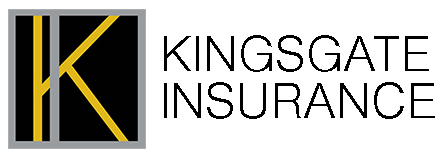Money management tips when moving to a new city
Finances are top of mind for a lot of people these days. If you’re planning to move into a new home in a new city, it’s important to have a secure grasp on your financial situation. While diving into your finances, there are a variety of things to think about and do to prepare for the move.
Consider these tips to ensure you’re keeping money matters at the forefront and staying on track throughout this transition.
Research the Cost of Living
Before taking the leap, you’ll want to do some research on how much money you’ll need to live in your new city. Understanding these cost factors can better help you navigate your finances and develop a budget plan if needed. In the long run, it’ll also give you a better idea of how to achieve and maintain financial success in your new city.
As a starting point, use a cost-of-living calculator to get an idea of how much it costs to live there. Throughout your research, consider how you’ll be able to manage the new expenses of the city and the financial aspects of the move that come with it. Do you need to develop a firmer budget? Do you need to allocate more funds to the move and getting settled? Are you going to have to put more into an emergency fund to support unpredictable events that may arise during the move? Keep those questions circulating to ensure you’re financially prepared.
Review Your Current Financial Standing and Assets
After researching the cost of living in the new city, you’ll want to assess where you currently stand with your finances. Review recent paycheck statements, monthly bills, and your savings account. You’ll also want to look at your current debts and think about how much you want to allocate toward an existing or new emergency fund. These are important factors to keep in mind as you start to navigate your expenditures in your new city.
While you assess everything, a great way to stay organized is using an Excel spreadsheet or a budgeting app. From there, within the spreadsheet, you can estimate various expenses that’ll come with relocating to your new home. Planning ahead is never a bad idea.
Plan a Budget Devoted to Your Move
A move can be very expensive. You’ll want to lay out and plan all the costs associated with your move. Different aspects that you’ll have to consider are moving trucks, supplies, storage units, travel, transporting cars, home updates, new licenses and registrations (if you’re moving to a new state), potential furniture, and cleaning costs.
As you plan out the costs of moving, you’ll want to think about the best ways to manage expenses. There are a variety of options a person can use, including paying out of pocket via savings or a debit card, using a credit card or personal line of credit, or using a personal loan. A perk of paying with money from your savings or using a debit card is that the payment is done and over with. You won’t have to worry about paying anything back. If you choose the credit or loan options, you’ll have a more extended period to pay off expenses, but it’s important to remember to factor monthly payments into your budget to ensure you are paying statements on time.
Find a Budgeting Style
As you continue to sort your finances in preparation for the move, a great idea is to find a budgeting style and stick to it. Having a budget allows you to see the scope of your finances. With a budget, you’ll be able to easily see how much you spend and save each month and extra spending money you have available.
Budgeting styles to consider:
Envelope method. Divide envelopes into various categories (think of spending areas such as rent/mortgage, grocery, gas, travel, etc.). From there, divide up money from paychecks into each category. The envelope method is a great way to hold yourself accountable and to be conscious when it comes to spending money. It makes you put a lot more thought behind your actions when making purchases.
50/30/20 budget. Break up your paycheck into three categories based on the ratio in the name: necessary expenses such as rent, groceries, gas, etc. (50%), discretionary expenses such as concert tickets, a vacation, etc. (30%), and savings and debt (20%). You can tailor these percentages to your needs depending on your situation. For example, if you have more debts, maybe allocate more money to that category. This can be a great method because you can completely customize it.
Zero-based budgeting. The goal of this budget is to divide all your money into allocated spending areas so that your income, minus your expenses, equates to zero. In a budgeting app or spreadsheet, record your income and then list out the categories you’ll have to make payments toward throughout the month. Add in a ballpark estimate for each spending area until it equals zero dollars. Remember the point of this budget is to ensure every dollar has a place whether that be toward savings, rent, groceries, etc.
Pay-yourself-first budget. This budget method aims to set aside enough money from your paycheck each month to pay down debts and build your savings. This a good method for when you need to prioritize savings and debt repayment goals. Once you’ve done that, you can spend the remaining money on whatever else you want.
Boost Your Credit Score
Your credit score directly affects you, especially when you’re applying for a mortgage or an apartment. Whether you are renting or buying a new home, if you have a poor credit score, you may not get approved by a lender or landlord. During this time, it’s always a good idea to keep a close eye on your score to ensure you’re maintaining healthy credit.
If you’ve reviewed your score and want to get it into a “good” or “excellent” range, there are a variety of ways to improve your credit score. Some practices you could adopt include paying off your credit card balance consistently every month, paying more than the minimum balances, and setting up automatic payments so you don’t miss due dates or get penalized for late fees.
Look Into Banks in the Area
As you begin to plan the move, you’ll want to research if your existing bank has locations in the new town. If it does, great! If not, you’ll want to research banks in the area that are more accessible to you and then start the process of transferring your money.
As you search, there are a few things you’ll want to investigate. You’ll want to make sure you can trust that your assets are safe and secure. Availability is also important to ensure that you have access to the bank whenever you may need it along with the number of ATMs in the area and surrounding towns. If they’re in other cities and states that’s also a plus. As you speak to a potential new bank, you’ll want to understand the various fees and interest rates that they have to help you find the one best for you.
Consider Warranties and Insurance
As a new homeowner or renter there are a few key aspects you’ll want to think about related to warranties and insurance. Having a warranty and insurance coverage are important for feeling secure when any breakdowns or natural disasters occur.
Getting a home warranty plan is smart when it comes to covering appliances in a new or pre-owned home. If an appliance breaks down and a warranty is mentioned in its service plan, you can get covered for any repairs that need to be made or if the appliance needs to be changed out.
Purchasing moving insurance is a great way to ensure that any items lost or damaged during your move are covered. Moving can potentially have an increased risk of missing and broken items – which is why it’s always smart to have coverage. Having this coverage can take the worry out of how you’ll pay to replace items.
Homeowners insurance or renters insurance protects both your home and personal items. It covers any natural disasters and situations that are out of your control. Not only that, but it can also cover any financial protection from injuries that could occur on your property. If you live in a location where there’s severe weather such as hurricanes, tornadoes, or snowstorms, coverage is likely something you’ll want to consider.
A move to a new city can be a fresh and exciting time. Considering these tips and having your finances organized ahead of time is a great way to ease any money-related stress you may feel during the relocation process.







Leave a Reply
Want to join the discussion?Feel free to contribute!